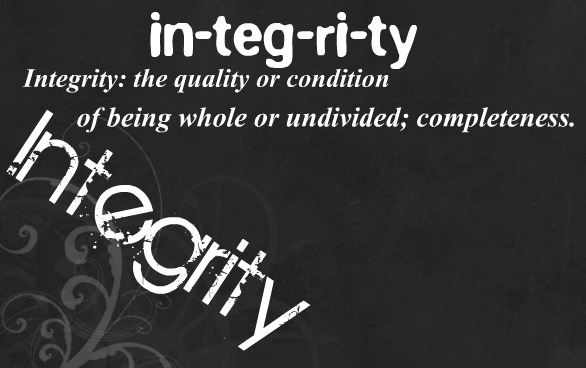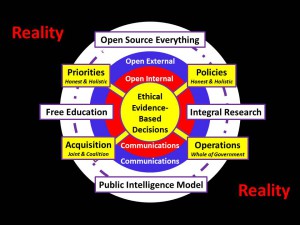
The Citizen Initiative Review is a major development on the road to sustainability. It should be supported and promoted by everyone involved with environmental, ecological, and sustainability issues. Let me explain.
1. INTELLIGENCE
Think about what intelligence actually is and why it evolved in the first place. Intelligence evolved because it helps us make better decisions about how to engage with the world around us. It enhances our ability to be “right”, to see what's really going on and act accordingly. Organisms and societies that make stupid decisions get weeded out by natural selection — sooner or later.
Thus there is a tight relationship between intelligence — the ability to learn our way into congruence/fit with our environment, adjusting to changes and challenges as we go — and sustainability — the ability to maintain our society over time in the face of changes and challenges. Collective intelligence at the societal level — the ability of a society as a whole to perceive, reflect on, understand, and act on the real conditions it faces — is an obvious and absolutely fundamental necessity for developing sustainability. To the extent we can't collectively perceive, reflect on, understand and act on the real conditions we as a civilization face, we will collapse, taking down much of nature with us (because we are so big and powerful and have our fingers in virtually every natural pie). On the other hand, to the extent we can engage intelligently with the world around us, we will survive — or, to speak ecospeak, we will “be sustainable”. This follows the pretty standard Evolution 101 survival-if-you-fit logic.
The only reason I can see why all this is not totally obvious to everyone is that the societal capacity — and the field of inquiry and practice — that I and thousands of other theorists and practitioners call “collective intelligence” is simply not widely known or understood by society at large and by activists in particular. While this is understandable — because the field is so new — it is a potentially fatal area of ignorance.
The naming of this phenomenon — “collective intelligence” — has been a vital a step in its development — as vital as Newton naming “gravity”. Before Newton, apples just “fell”. We had apples and we had “falling”. We didn't have “gravity”. Once Newton framed this phenomenon of “falling” as a force acting on the apple and gave that force a name — “gravity” — he instantly made modern astrophysics and space travel possible. Before that, those things were simply beyond our reach.
Similarly, to the extent we understand (a) that collective intelligence — especially societal intelligence — is a vital whole-system capacity without which we WILL NOT achieve sustainability and (b) that there is a rapidly growing body of wisdom and know-how about how to enhance that capacity, then and only then will mass movements for a sustainable society include the development of that capacity as a priority in their work — right up there with spreading the word on climate change, stopping the destruction of rain forests, and developing sustainable agriculture, transportation, buildings and energy.
2. CITIZEN DELIBERATION AND SOCIETAL INTELLIGENCE
One of the most powerful innovations to further collective intelligence at the whole-society level is the citizen deliberative council. It is important because citizens individually lack what they need to practice high quality citizenship. They lack sufficient time, sufficient quality information, sufficient freedom from distraction, and sufficient opportunity to talk with each other productively. So they fall back on partisan opinion leaders to tell them what to do — or else they simply slide along the well-greased track of entertaining or bread-winning distractions-from-citizenship. This leaves the field open to massive manipulation — a process in which environmentalists only occasionally get the upper hand, only to be defeated repeatedly by the self-interested agents of collective stupidity.
Continue reading “Reference: Citizen Initiative Review by Tom Atlee”







